In picturesque landscapes of various countries, rivers and waterways come alive with an enchanting display of floating fruit barges. These traditional vessels, laden with a vibrant assortment of fresh fruits and vegetables, paint a mesmerizing picture on the water, symbolizing the essence of agriculture and cultural heritage. In this article, we delve into the fascinating world of these floating fruit barges, exploring their history, significance, and the unique experience they offer to locals and tourists alike.
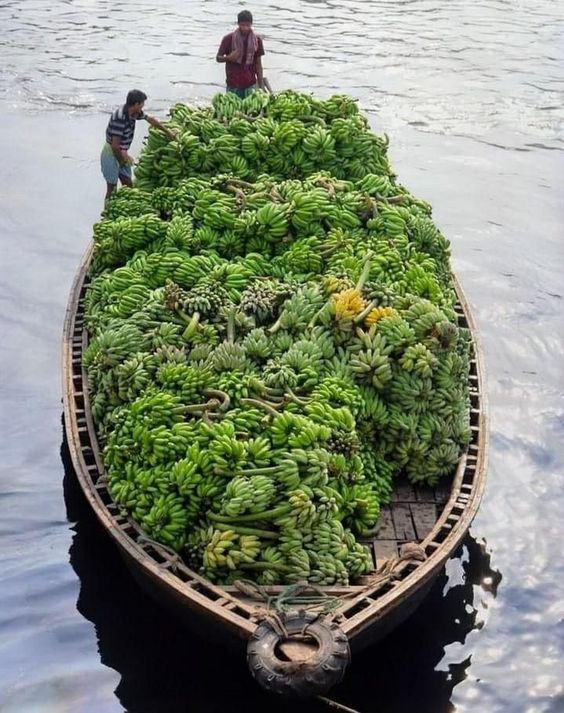
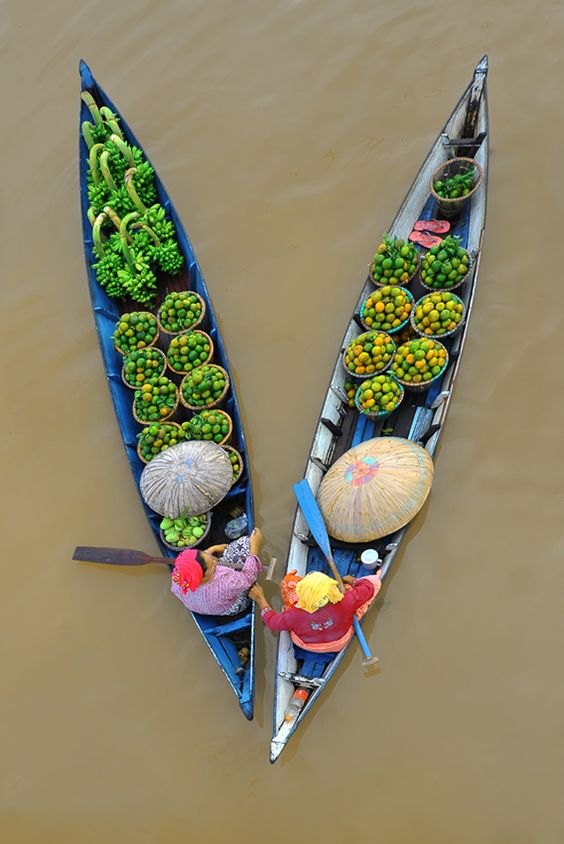
A Legacy of Trade and Tradition: The use of fruit-laden boats or floating markets has a rich historical legacy in many riverine regions. Dating back centuries, these barges were essential for transporting goods, including fresh produce, from farms and orchards to marketplaces in bustling towns and cities. Over time, these waterborne markets evolved into vibrant cultural symbols, preserving traditional ways of commerce and community interaction.
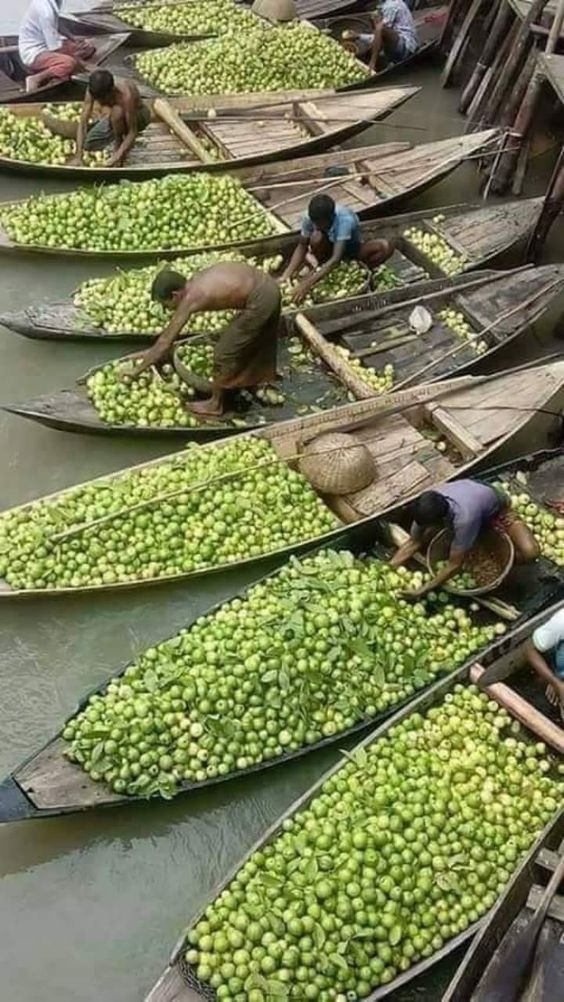
A Feast for the Senses: As the sun rises, these floating fruit barges begin to emerge, adorned with a kaleidoscope of fruits and vegetables. Luscious oranges, plump mangoes, succulent watermelons, and a variety of tropical delights create a visual feast for onlookers. The air is filled with the sweet fragrance of ripe produce, while the sounds of enthusiastic sellers and bargaining customers add to the lively ambiance.
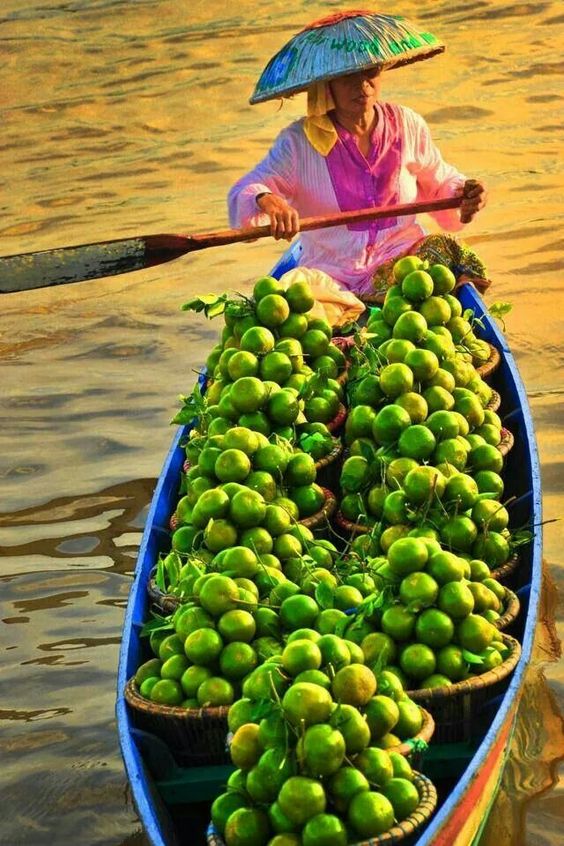
An Immersive Cultural Experience: Floating fruit barges offer more than just a place to buy fresh produce; they provide a unique and immersive cultural experience. Local farmers and vendors, often dressed in traditional attire, skillfully arrange their goods, inviting passersby to sample and purchase. The interaction between sellers and buyers becomes a delightful cultural exchange, where stories and recipes are shared, and a sense of community thrives.
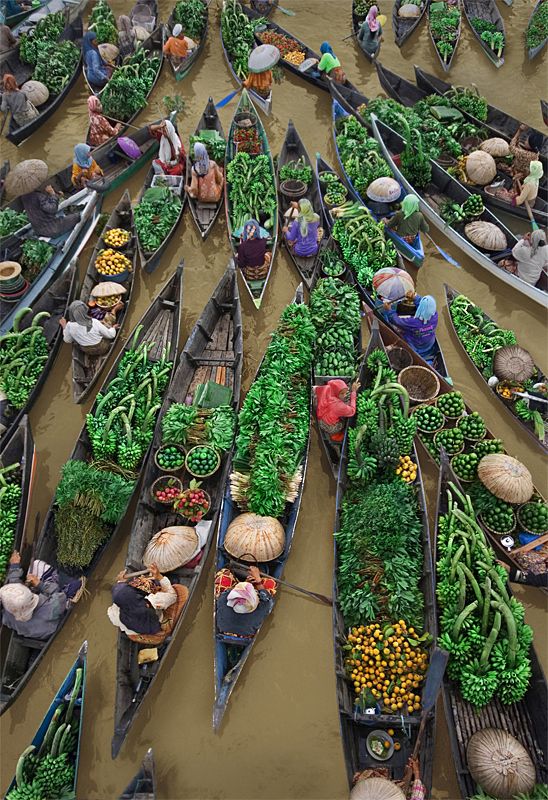
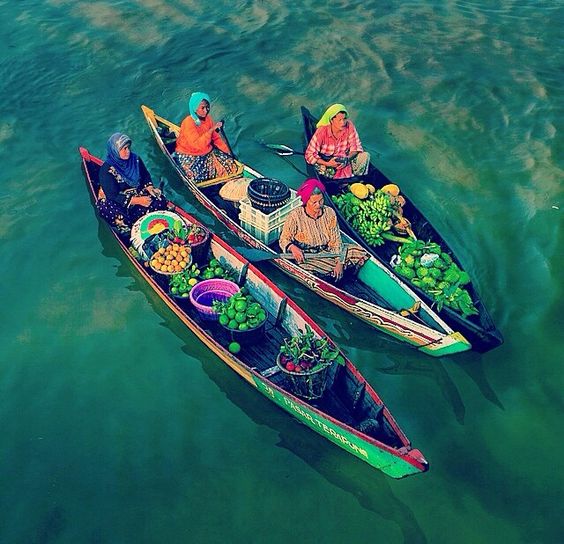
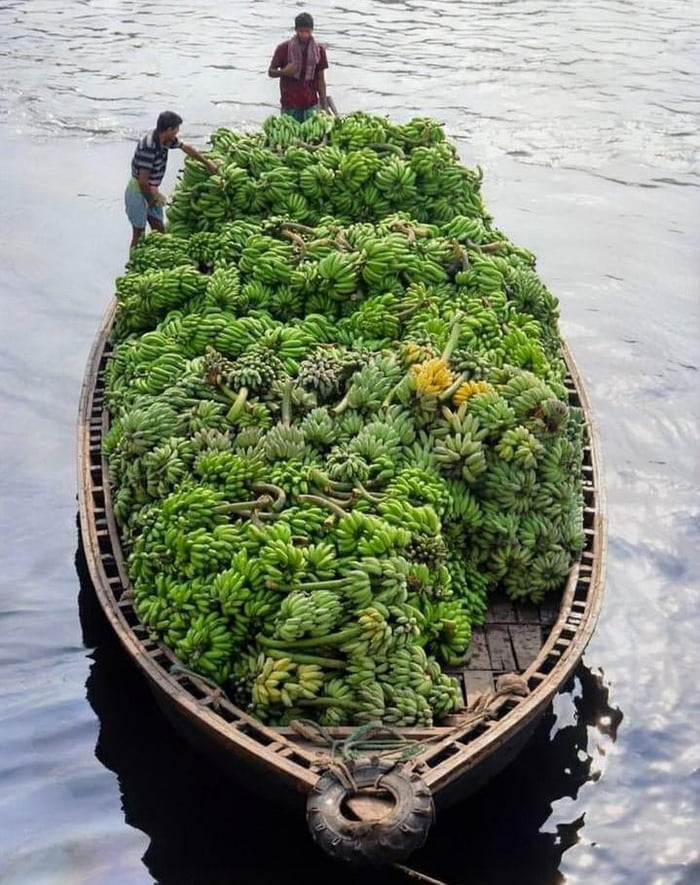
Sustainable Commerce and Agriculture: In many regions, floating fruit barges contribute to sustainable agriculture and commerce. By bringing produce directly from farms to consumers, these barges reduce the carbon footprint associated with transportation and packaging. Additionally, they empower local farmers by providing direct access to markets and fair prices for their products, thus supporting the rural economy.
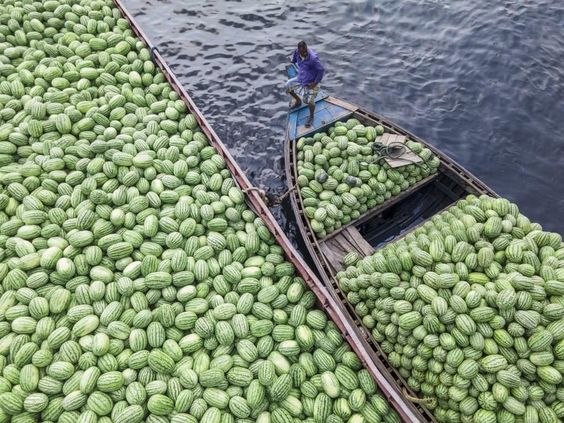
Tourism and Heritage Preservation: For travelers and tourists, witnessing the spectacle of floating fruit barges is an unforgettable experience. It offers a glimpse into the traditional way of life, steeped in the agricultural heritage of the region. As these floating markets draw visitors from around the world, they also help preserve and celebrate the unique cultural identity of the local communities.





